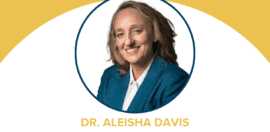Claire Stuchbery joined LINA (The Local Independent News Association) from 1 July 2022 after a 20-year career in media policy, stakeholder engagement, policy development and communications. Previously, Claire worked in policy and stakeholder engagement for First Nations Media Australia, the peak national body for First Nations not-for-profit broadcasting, media and communications.
Claire has also worked in a range of senior management roles with the Community Broadcasting Foundation, ran her own media agency, worked in street press publications and was a broadcaster and board member at a number of community radio stations, including most notably, continuing volunteer roles at PBS in Melbourne.
Read on for our interview with Claire!
Describe your career trajectory and how you got to your current position.
I have been involved in community broadcasting since I was a teenager and started my career in the music industry. I went into street press publishing at Furst Media in my early 20s and then into sales at PBS FM – both fun and creative jobs that allowed me to watch bands at night and interview musicians during the day. PBS is one of the bigger stations in the community radio landscape and other stations kept asking for support to bring in sponsorship revenue, so I started an agency with a group of radio friends called 4PeopleMedia, an aggregated media buying service for the community broadcasting sector. After a few years of that I got tired of asking companies for money and decided to ‘jump the fence’ and give out some funds at the Community Broadcasting Foundation, distributing and overseeing government investment in community broadcasting. By this stage I am fully invested in facilitating the sharing of diverse perspectives in the media landscape. I strongly believe that a media ecosystem that reflects the communities we live in makes us stronger as a society. Representation matters, sharing untold stories matters, media diversity matters for audiences. After a few years in grant making I moved into a policy and strategic communications role at First Nations Media Australia, the industry association for Aboriginal and Torres Strait Islander media makers. I ended up as CEO there before stepping out to take up the role of Executive Director at the Local & Independent News Association which was just starting up. I had developed an understanding of the role support organisations play in enabling content-makers to share the stories that matter to their communities, and what is needed to facilitate that work from a legislative, policy, infrastructure, resourcing, skills, business model and creative point of view. I am, after all, a broadcaster still – I present a radio show on PBS FM every Tuesday even now. But my career has been about the background environment that allows people to do that work, and that’s the lens I bring to the independent news space.
What does this role mean to you?
Australia has one of
the most concentrated media
markets in the world. A monocultural media environment doesn’t reflect the richness of our communities and can be damaging when the views of a few can significantly impact access to information on issues such as the environment, health, politics and increasingly, misinformation. Working at LINA for me is about strengthening social cohesion; increasing our understanding of the people around us and allowing space for nuanced discussion on issues that affect us all. We think about news as a service to communities, not a news ‘outlet’. This work is about providing people with the information they need to make decisions about their own lives. The consolidation of media in Australia has resulted in syndication of content, meaning most news is produced in Sydney. While we absolutely need international, national and state-wide news, there is a gap in information that is directly relevant to where we live and work, and study after study around the world tells us audiences want that news. That is the gap LINA is trying to resolve through supporting existing and emerging newsrooms.
Take us through a typical day of work for you.
The day starts with an online stand-up for our remote team. We check-in on priorities for the day and make sure we’re across any requests for help from member publishers. From there, my day usually moves into developing partnerships on behalf of the 130 publications we currently support. For example, this week I’ll be talking to LinkedIn, the News Product Alliance in the US to explore ways to support Australian public interest news publishers. I’ll talk to local publisher, Newsport about a software development piece we’re working on which will make listing management easier for local publishers across the group. I’ll go to a roundtable discussion with the Public Interest Journalism Initiative to progress some advocacy work on recognising public interest journalism as a charitable good in legislation. And I’ll attend the launch of a report on gender bias in journalism to see how we can help our member publishers address an imbalance in newsrooms and re-engage female audiences in news content. In amongst that, I’ll write our annual report, set up a meeting with the Department of Communications team working on the News Media Assistance Program policy at the moment, introduce our Member Engagement Coordinator to someone who can speak to our members about solutions journalism from a local publisher perspective so she can put that into our training program and handball a piece that has been sitting on my desk for awhile about getting local news into the national archives to our support officer to carry forward. A typical day revolves around partnerships, policy, member services, managing the projects our team is working on and responding to any member enquiries that land on my desk. Right now, I’m exploring venue options for our 2025 Annual Summit. I love the diversity in my role.
What is the biggest challenge you’ve encountered in your career, and how did you overcome it?
A little bit of money in grassroots media goes a long way. Trying to get people to understand that there is huge potential for media services to build their sustainability, but only with investment in key business development roles is a huge challenge. Media organisations, by necessity, focus on meeting the needs of audiences. Increasing pressure on profit margins means businesses have had to hollow out those roles that build revenue streams over decades. It wouldn’t take much to reverse this trend in the independent news sector, but getting funders to prioritise this work has been a huge challenge. People want to support storytelling, less so business models. We have so many projects to roll out that would have ongoing, meaningful impact in the industry and really support the green shoots of journalism that we’re seeing across the country, but we struggle to get people to understand how this work underpins all of the other outcomes in our communities in terms of emergency preparedness, health, education, social cohesion, loneliness, all types of things.
How do you stay motivated to work in this field?
I hear stories of impact from our member publishers every day. A story that made a change in a local community, a piece of misinformation that was myth busted through investigative journalism, an emerging reporter who had their work amplified in national media after finding an untold story in their local area…. The passion local and independent news publishers have for their communities is inspiring. They work in service to their communities and I work in service to them. It’s easy to stay motivated when there is so much good to be done!
How do you unwind after work?
I hit the boxing gym. After a day of fighting the good fight, I shake it out at the gym.
What was the last thing you:
o Watched, Read, & Listened to?
Watched: Ali Wong’s new stand-up comedy special on Netflix
Read: International News Media Association piece on how the Canadian Online News Act is going, 16 months after it was introduced
Listened to: The Squiz newsmakers podcast and a new album from Greek/Australian punk band, Frenzee








